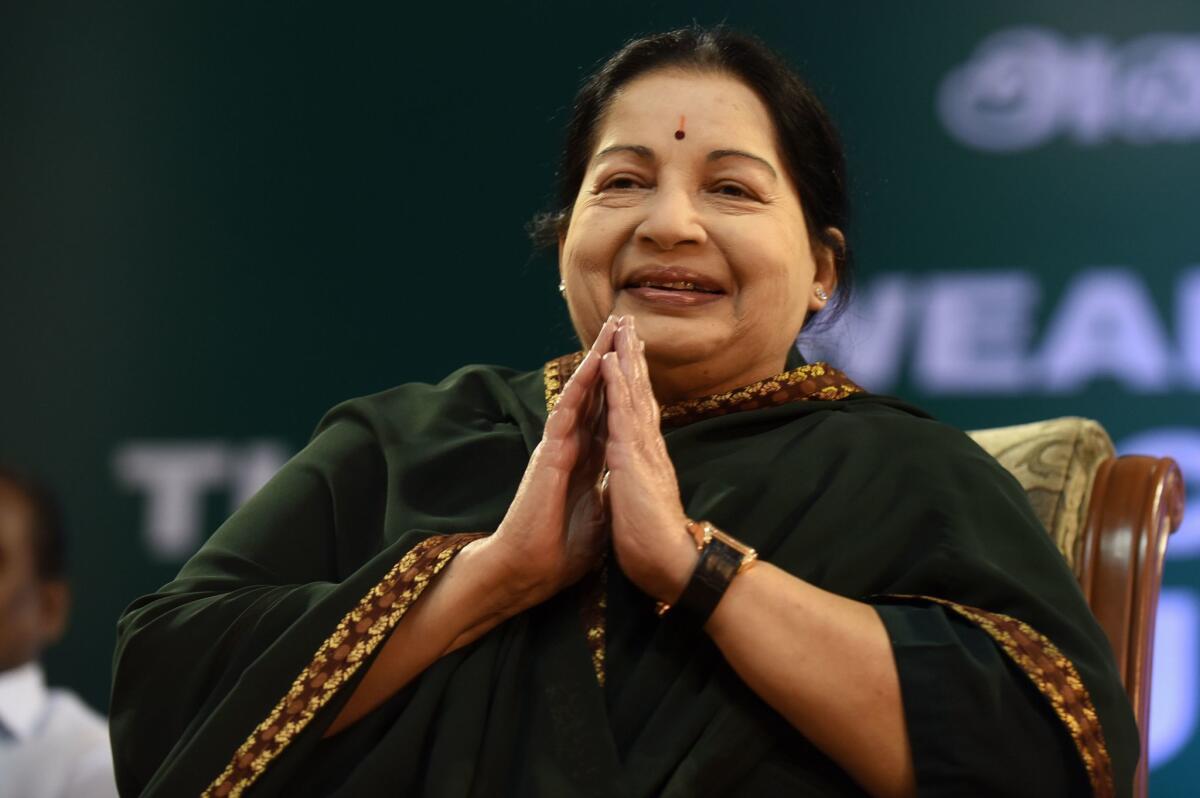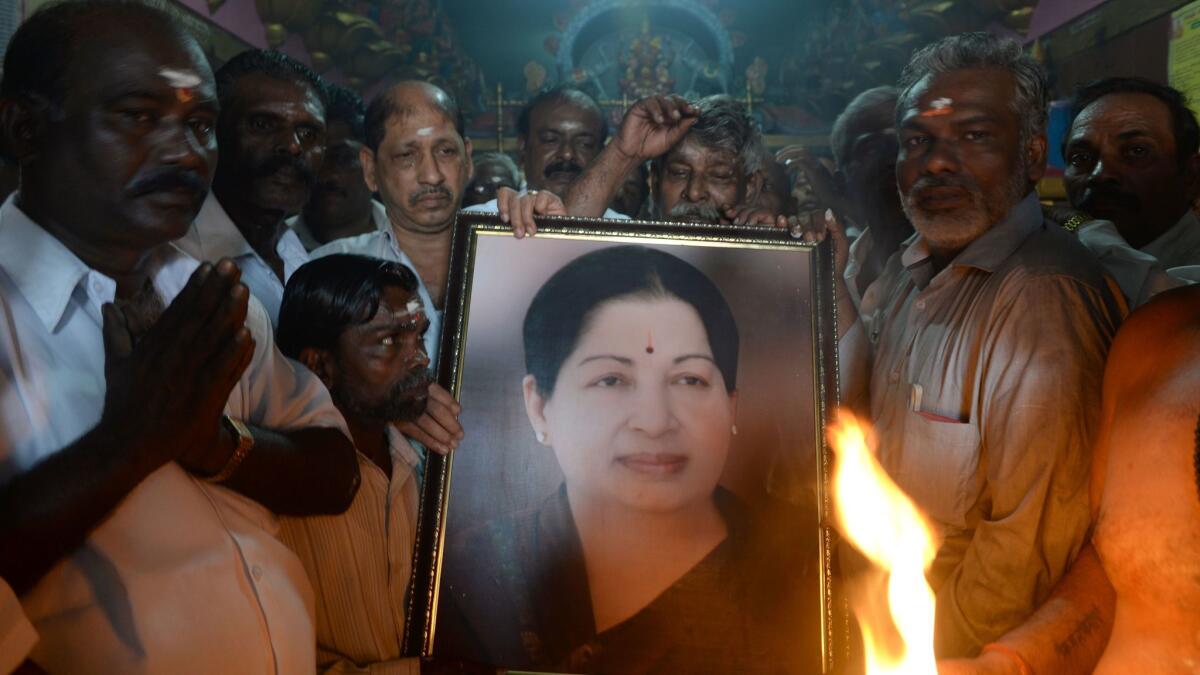Popular Indian actress-turned-political-force Jayaram Jayalalithaa dies at 68

- Share via
Reporting from Chennal, India — Jayaram Jayalalithaa, the hugely popular south Indian actress who later turned to politics and became the highest elected official in the state of Tamil Nadu, died Monday. She was 68.
The Apollo Hospital in the southern Indian city of Chennai said Jayalalithaa died after undergoing surgery following a heart attack on Sunday night.
Known by her followers as Amma, which means mother in the Tamil language, Jayalalithaa inspired intense loyalty among film fans and political supporters alike.
As news of her death spread, thousands of people swarmed the road long after midnight to watch as the ambulance carrying her body from the hospital to her home sped by in a motorcade.
Police had a hard time controlling people from rushing onto the road. Many people wept and beat their breasts as they were overcome by grief.
Earlier Monday, thousands of Jayalalithaa’s supporters, wailing and crying, gathered outside the hospital to pray for her recovery. Police were deployed across the state to ensure security out of fear that her death could trigger widespread violence and riots.
Jayalalithaa was 13 when she began her film career and quickly became known as a romantic lead in many of the nearly 150 Tamil-language movies that she worked on.

The neighboring state of Karnataka stopped public buses from traveling to Tamil Nadu after one of them was attacked Monday.
The U.S. Consulate in Chennai issued an advisory urging Americans to be careful in the city and avoid large crowds.
The Tamil Nadu government declared a seven-day mourning period beginning Tuesday. Schools, colleges, offices and businesses were to be closed for the next three days, which have been designated a public holiday.
Within hours of Jayalalithaa’s death, her trusted lieutenant, O. Panneerselvam, was sworn in as chief minister of the state.
Indian Prime Minister Narendra Modi said he was “deeply saddened” by Jayalalithaa’s death. “Her demise has left a huge void in Indian politics,” Modi tweeted.
She entered politics in the early 1980s, under the guidance of M.G. Ramachandran. Soon after his death in 1987, she declared herself his political heir and took control of the All India Anna Dravida Munnetra Kazhagam Party.
She served as Tamil Nadu’s chief minister, the highest elected position in the state of 71 million people, for nearly 14 years over five terms beginning in 1991. She regained her office last year after a corruption case against her was overturned.
Her supporters praised her efforts in fighting rural poverty with handouts such as laptop computers for students, cows and goats for farmers and spice grinders for homemakers.
Such free gifts are commonly used by Indian political parties in courting voters, but her handouts were still criticized by some as wasteful pandering and unfair bribery. But Jayalalithaa defended the giveaways as welfare measures aimed at helping the poor.
She was known for leading an extravagant lifestyle. In 1997, police found more than 10,000 saris and 750 pairs of shoes after raiding her home as part of a corruption investigation.
In the first half of 2014, Jayalalithaa made a bid to become India’s prime minister by saying she would form a coalition in New Delhi if no party dominated the elections. But the Bharatiya Janata Party won a clear majority, catapulting Narendra Modi into the nation’s top job.
Later that year, she was forced to step down as chief minister in Tamil Nadu state when she was sentenced to four years in prison for amassing more than $10 million during her political career, a wealth the court said was disproportionate to her income.
She spent 21 days behind bars before the Indian Supreme Court released her on bail. In May 2015, an appeals court overturned the corruption charges, clearing the way for her return to power.
Jayalalithaa returned to office as chief minister May 23 and a month later was re-elected in a by-election.
Sharma writes for the Associated Press.
More to Read
Start your day right
Sign up for Essential California for the L.A. Times biggest news, features and recommendations in your inbox six days a week.
You may occasionally receive promotional content from the Los Angeles Times.




